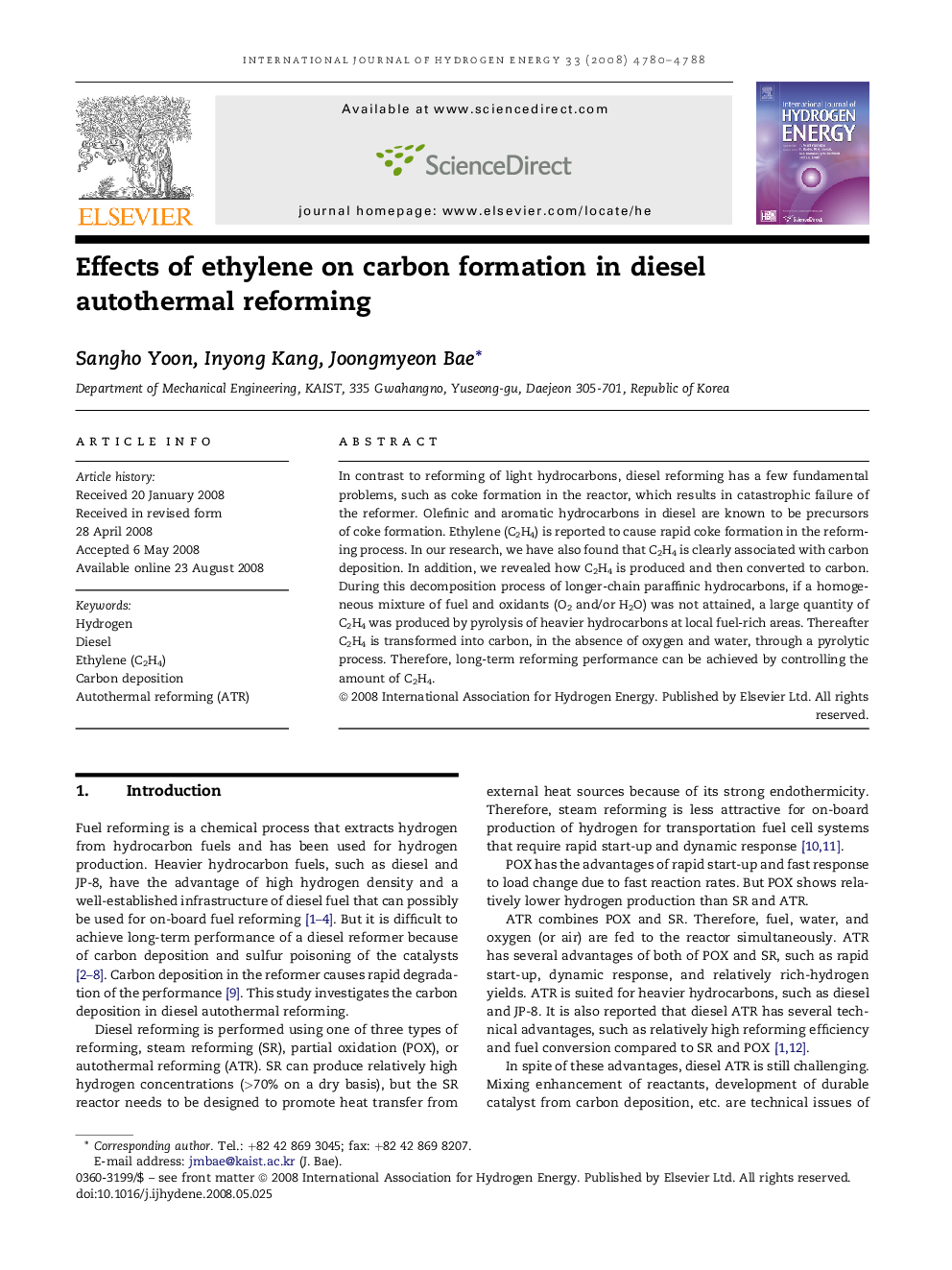| Article ID | Journal | Published Year | Pages | File Type |
|---|---|---|---|---|
| 1279219 | International Journal of Hydrogen Energy | 2008 | 9 Pages |
In contrast to reforming of light hydrocarbons, diesel reforming has a few fundamental problems, such as coke formation in the reactor, which results in catastrophic failure of the reformer. Olefinic and aromatic hydrocarbons in diesel are known to be precursors of coke formation. Ethylene (C2H4) is reported to cause rapid coke formation in the reforming process. In our research, we have also found that C2H4 is clearly associated with carbon deposition. In addition, we revealed how C2H4 is produced and then converted to carbon. During this decomposition process of longer-chain paraffinic hydrocarbons, if a homogeneous mixture of fuel and oxidants (O2 and/or H2O) was not attained, a large quantity of C2H4 was produced by pyrolysis of heavier hydrocarbons at local fuel-rich areas. Thereafter C2H4 is transformed into carbon, in the absence of oxygen and water, through a pyrolytic process. Therefore, long-term reforming performance can be achieved by controlling the amount of C2H4.
